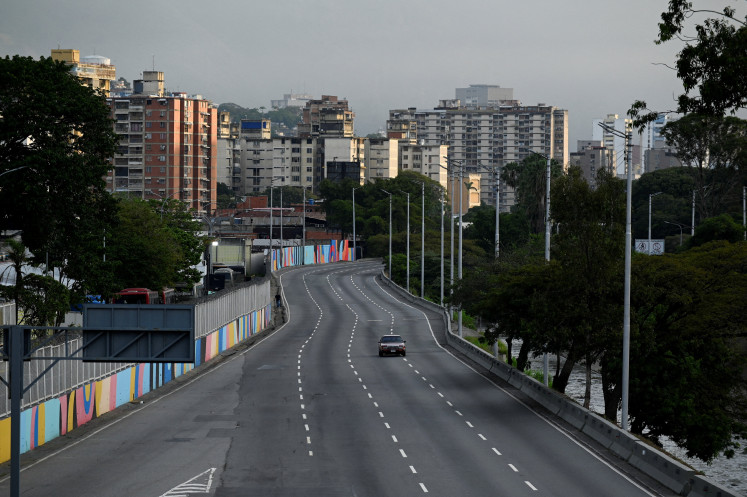Popular Reads
Top Results
Can't find what you're looking for?
View all search resultsPopular Reads
Top Results
Can't find what you're looking for?
View all search resultsTo cover or not to cover - is that the question?
In a world of images and image creation, a veil or a headscarf is more than just an accessory
Change text size
Gift Premium Articles
to Anyone
In a world of images and image creation, a veil or a headscarf is more than just an accessory. It's a statement.
Wearing one with sunglasses, Grace Kelly style, is like saying, "I'm an elegant socialite." Wearing one the Islamic way in a Muslim-majority country during a presidential election period takes it to another level. According to some, at least.
Muhammad Qodari of survey institute Indo Barometer says that, symbolically, women's headscarves known as jilbab are very attractive for conventional Muslim women, as in you-could-win-votes-if-your-wives-wear-headscarves attractive.
What is it actually about that piece of fabric a woman wears to cover her head, neck and bust?
"For me, it's part of my identity," says 29-year-old Atty Antono who started covering her head and neck a couple of years ago. "That I am a Muslim who knows how to follow the teachings of my religion."
But she is far too politically aware to cast her vote based on how a candidate dresses, let alone to allow the fashion choices of a candidate's wife dictate her position.
"It's irrelevant," she says.
Is she the typical voter? Perhaps it's too early to generalize.
"When I go to talk with members of Majelis Taklim *groups of Muslim women who hold regular Koran recitals*, headscarves become an important consideration. Even if it does not involve the candidates directly," says Lollyta Diah Kartikasari, an activist from the Prosperous Justice Party.
"And that issue is intentionally raised to shape public opinion."
Lollyta actually objects to the way clerics promote candidates based on an issue like this.
"At first, I was also thinking that . hmm, candidates whose wives wear headscarves must have been men who succeeded in educating their spouses to dress in the Islamic way. But, then . hey, it's not about their wives. It's about their performance as a nation's leader," she says, adding that adopting this approach meant she realized she had more work to do in reeducating the so-called conventional Muslim women.
Well, in the world of politics, anything can be twisted. Especially in a country where part of society still easily falls for the vulnerable and the seemingly angelic - a characteristic that some choose to exploit.
"It is sad to see some people are still associating presidential candidacy with issues like the jilbab," says Muslim scholar Siti Musdah Mulia. "It means that certain groups *that use the issue* are really lacking the concept of nation building.
"What we need are candidates with vision and commitment to democracy, pluralism and good governance. Ones that can free the country of ignorance, poverty and all forms of imperialism," she adds.
"Associating jilbab with the presidential candidates is simply na*ve."
- JP/ Anissa S. Febrina










